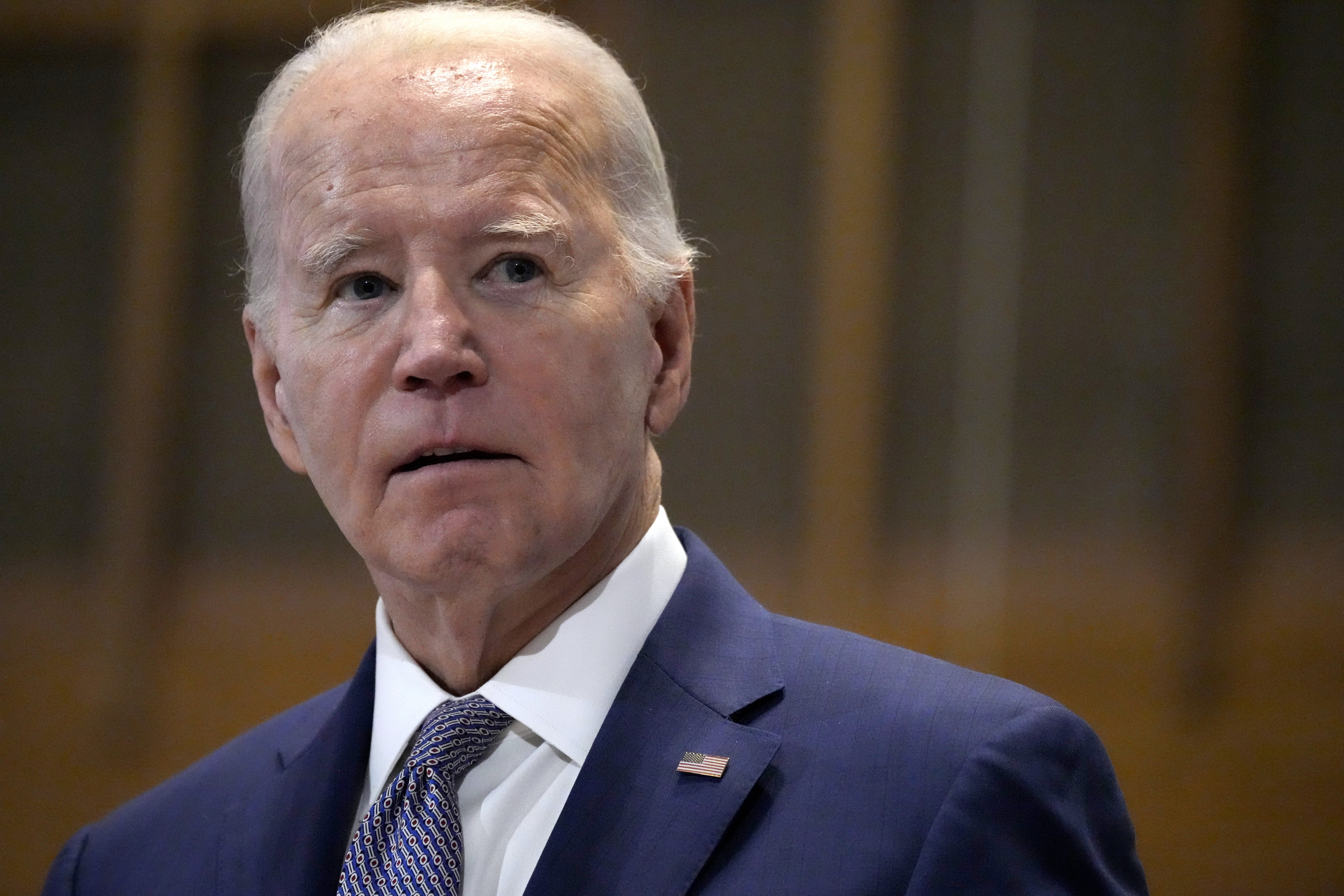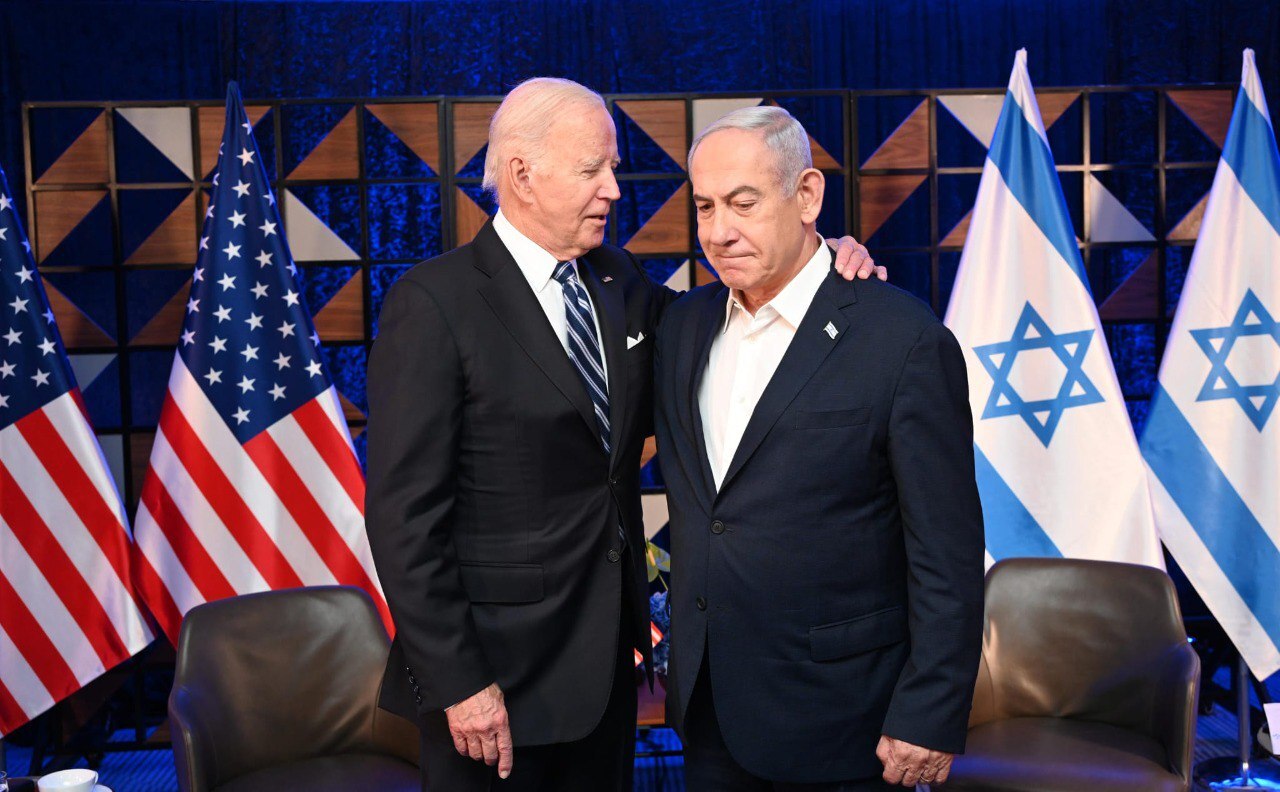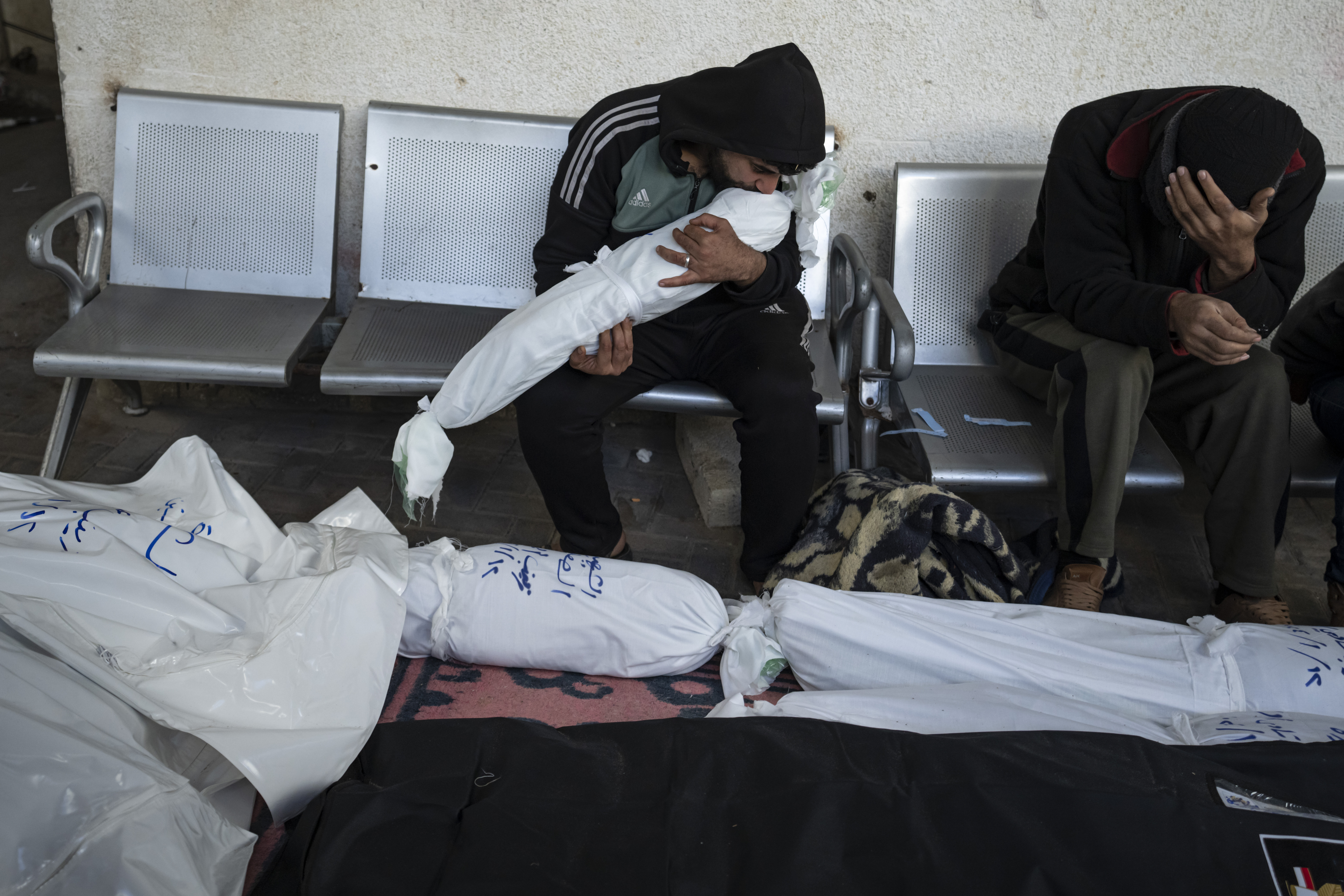
The secretary-general of the United Nations on Sunday called on countries to resume funding the main agency providing aid in the Gaza Strip after a dozen of its employees were accused of taking part in the Hamas attack on Israel that ignited the war four months ago.
The dispute engulfing the U.N. agency for Palestinian refugees came as U.S. officials said negotiators were closing in on a cease-fire agreement. The emerging deal would bring a two-month halt to the deadliest-ever Israeli-Palestinian violence, which has stoked instability across the Middle East.
U.N. Secretary-General Antonio Guterres warned that the agency known as UNRWA would be forced to scale back aid to more than 2 million Palestinians in Gaza as soon as February. The coastal enclave is in the grip of a severe humanitarian crisis, with a quarter of the population facing starvation as fighting and Israeli restrictions hinder the delivery of humanitarian aid to the besieged territory.
“The abhorrent alleged acts of these staff members must have consequences,” Guterres said in a statement.
Get top local stories in DFW delivered to you every morning. >Sign up for NBC DFW's News Headlines newsletter.
“But the tens of thousands of men and women who work for UNRWA, many in some of the most dangerous situations for humanitarian workers, should not be penalized. The dire needs of the desperate populations they serve must be met,” he added.
US & World News
He said that of the 12 employees accused of taking part in the attack, nine were immediately terminated, one was confirmed dead and two others were still being identified. He said they would be held accountable, including through criminal prosecution.
UNRWA provides basic services, from medical care to education, for Palestinian families who fled or were driven out of what is now Israel during the 1948 war surrounding the country's creation. They now live in built-up refugee camps in Gaza, the Israeli-occupied West Bank, Jordan, Lebanon and Syria.
The refugees and their descendants number about 6 million, and in Gaza they are the majority of the population. UNRWA, which has some 13,000 staff members in Gaza, expanded its operations during the war and runs shelters that house hundreds of thousands of newly displaced people.
More than 2 million of the territory’s 2.3 million people depend on the agency's programs for “sheer survival,” including food and shelter, UNRWA Commissioner-General Philippe Lazzarini said. It's a lifeline that could “collapse any time now," he said after the funding was suspended.
The United States, which is the agency's largest donor, immediately cut funding over the weekend, followed by eight other countries, including Britain, Germany and Italy. Together, the nine countries provided nearly 60% of UNRWA's budget in 2022.
The Israel-Hamas war has killed more than 26,000 Palestinians, according to local health officials, destroyed vast swaths of Gaza and displaced nearly 85% of the territory’s people. The Oct. 7 Hamas attack into southern Israel that sparked the war killed about 1,200 people, mostly civilians, and militants took about 250 hostages to Gaza.
Two senior Biden administration officials said U.S. negotiators were making progress on a potential agreement under which Israel would pause military operations against Hamas for two months in exchange for the release of more than 100 remaining hostages.
The officials, who requested anonymity to discuss the sensitive negotiations, said that emerging terms of the yet-to-be sealed deal would play out over two phases, with the remaining women, elderly and wounded hostages to be released by Hamas in a first 30-day phase. The emerging deal also calls for Israel to allow more humanitarian aid into Gaza.
More than 100 hostages, mainly women and children, were released in November in exchange for a weeklong cease-fire and the release of 240 Palestinians imprisoned by Israel.
CIA Director Bill Burns is expected to discuss the contours of the emerging agreement when he meets Sunday in France with David Barnea, the head of Israel’s Mossad intelligence agency, Qatari Prime Minister Mohammed bin Abdulrahman Al Thani, and Egyptian intelligence chief Abbas Kamel.
In the News
Despite the apparent progress, Israeli Prime Minister Benjamin Netanyahu reiterated in a televised news conference late Saturday that the war would continue until “complete victory" over Hamas.
Netanyahu also lashed out at the mass protests held by families of the hostages and their supporters calling for another cease-fire and exchange deal. He said the demonstrations“strengthen the demands of Hamas.”
Netanyahu's popularity has plummeted since Oct. 7 and he has faced mounting protests demanding new elections, with many Israelis blaming him for the unprecedented security failures that day as well as the plight of the hostages.
Tens of thousands of Israelis join weekly Saturday night protests in Tel Aviv, and recently dozens of relatives of the hostages have started protesting outside of Netanyahu’s private residence in Caesarea.
The dispute over UNRWA came as the International Court of Justice ruled Friday that Israel must do its utmost to limit death and destruction in its Gaza offensive and facilitate more humanitarian aid.
The binding ruling stopped short of ordering a cease-fire, but was in part a rebuke of Israel's conduct in the war. The case brought by South Africa to the U.N. court alleged Israel is committing genocide, which Israel vehemently denies. A final ruling is expected to take years.
The amount of aid entering Gaza remains well below the daily average of 500 trucks before the war, and U.N. agencies say distribution has been severely hampered by the fighting and delays at Israeli checkpoints.
In the past week, family members of the hostages and their supporters have blocked aid trucks from entering Gaza at the Kerem Shalom crossing, contributing to the backlog. On Sunday, dozens of protesters again blocked the entry, chanting “No aid will cross until the last hostages return.”
Later in the day, the military declared the area around the crossing a closed military zone, which would prohibit protests there. The move appeared aimed at ensuring the crossing can function.
Israel holds Hamas responsible for civilian casualties, saying the militants embed themselves in the local population. Israel says its air and ground offensive in Gaza has killed more than 9,000 militants, without providing evidence.
The offensive caused vast destruction in northern Gaza, where Israel says it has largely dismantled Hamas. The fighting is now focused on the southern city of Khan Younis and a cluster of built-up refugee camps in central Gaza dating back to 1948.
The United States, Israel’s closest ally, has increasingly called for restraint and for more humanitarian aid to be allowed into Gaza while supporting the offensive.
Shurafa reported from Deir al-Balah, Gaza Strip and Lidman from Jerusalem. Aamer Madhani, Matthew Lee and Zeke Miller in Washington contributed to this report.







